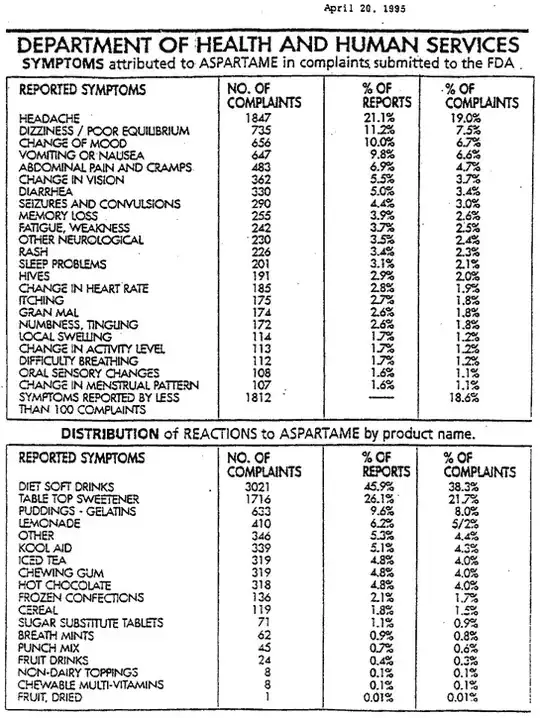Introduction
There have been numerous studies on this topic, and there are a number of artificial sweeteners, so the following is a discussion of three of the most important, saccharin, cyclamate and aspartame, as well as three more which are currently approved for use in food by the FDA, acesulfame potassium, sucralose, and neotame, in less detail.
Saccharin
There have been over 50 studies discussing saccharin, specifically its effects on rats, especially regarding cancer. About 20 of these involved rats consuming saccharin for over 1.5 years, nineteen of which found no significant differences between rats fed saccharin and rats not fed saccharin.1 The cancer-positive study did find a link between saccharin and bladder cancer, but used a type of rat susceptible to bladder cancer.2 3
There have also been multi-generational studies in which saccharin was fed to rats and their offspring, and found that male, second-generation rats fed saccharin were more at risk for bladder cancer than male, second-generation rats not fed saccharin.4 5 However, the same link could not be found in humans, as studies have found that cancer in rats is not a good predictor of cancer in humans. For example, low doses of Vitamin C cause cancer in rats.6 With no conclusive evidence linking saccharin to human health risk, bans on saccharin were lifted, at least in the United States.7
Cyclamate
After being approved by the FDA for use in food in 1951, cyclamate became a common artificial sweetener in American households. After a study in 1969 found links between cyclamate and bladder cancer in rats,8 the FDA banned cyclamate in food.
Later, a long-term study was conducted in which monkeys were fed cyclamate every day for 24 years. One group was fed cyclamate at dosages equivalent to 6 cans of diet soda a day, another at dosages equivalent to 30 cans of diet soda a day. The study concluded that there is no significant link between cyclamate and cancer in monkeys.9 While a petition has been filed with the FDA for the lifting of the cyclamate ban, however, the petition is not being actively considered for reasons unrelated to cancer.10
Aspartame
Approved for use in food by the FDA in 1981, a 1996 study posited a possible link between a general increase in brain tumor incidence and aspartame.11 A multitude of studies followed, among the largest of which found no link between aspartame consumption and brain tumors,12 and no link between aspartame consumption and changes in brain function.13
At one point, an editorial intended to directly address the 1996 study revealed that the conclusion was largely the result of ecological fallacy, essentially blind assumption.14 Of course, this is a small sample of the large numbers of studies conducted, including a human study that found little evidence that aspartame is likely to act as a human brain carcinogen.15
Eventually, the FDA released a statement citing a press release by the European Food Safety Authority. The statement, in addition to declaring its intent to better study aspartame, stated that the FDA has not been presented with scientific information that would support a change in its conclusions about the safety of aspartame.16
Acesulfame potassium, Sucralose and Neotame
Acesulfame potassium was approved by the FDA for use in food in 1988. Sucralose was approved by the FDA for use in food in 1998. Neotame was approved by the FDA for use in food in 2002.
The FDA states that it reviewed more than 100 safety studies before approving these sweeteners, and that the results of these studies showed no evidence that these sweeteners cause cancer or pose any other threat to human health.17
In Short
There have been a number of studies reviewing the safety of common artificial sweeteners, with mixed results. However, the quorum conclusion appears to be that even in very high doses, these substances are safe for human consumption. Note, however, that a number of artificial sweeteners were not discussed above, some of which may pose health risks.
